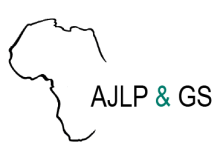Resource information
In view of land’s vital importance as a foundation of societal livelihood and its position being at the heart of social and political interests and conflicts, increasing number of universities in Africa have been launching and expanding formal educational and research programs since the last two decades. The ongoing expansion of land governance educational and research programs are mainly driven by the need for the overall socio-economic development reforms at continental level in Africa. It is obvious that academia plays the leading role in producing and providing competent graduates that will in time contribute to the processes of land reform. As a responses and input to the reform process, East African countries where this study has focused on have been giving high attention and dedication to open and incorporate educational or training programs in the field of land governance. However, studies to examine and evaluate the contents and quality of the curricula in addressing inclusive land governance are limited at continental as well as at regional level. Thus this study is aimed to review the land governance related curricula launched in the higher education institutes of Eastern Africa Region (Eastern African Land Administration Network) from the point of addressing the issue of inclusive land governance. A desk review approach and qualitative content analysis method was employed to achieve the objective of the study. Finally, this review shows that there is a clear limitation or gap to incorporate topics related to inclusive land governance principles in the existing curricula. This clearly implies that the existing land governance challenges and social and political conflicts are partly attributed to the gaps in the existing curricula or educational programs launched at national and continental level. Thus, this review calls for universities in Africa to highlight the importance of incorporating topics on inclusive land governance and related issues in the review process as a means to manage land in a just, conflict-free land sustainable manner.


